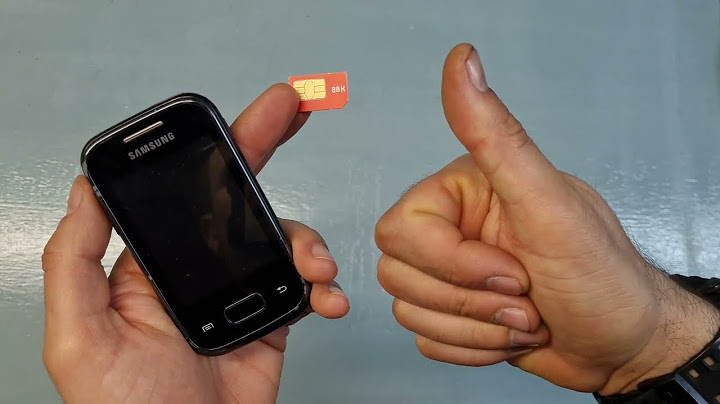Basic money management is about meeting your family’s everyday expenses, handling unexpected bills and saving for the future. It can put you in control of your money, which helps you avoid stress and feel more secure. Show Communication in your family plays an important role in managing money well. Honest conversations with your partner, if you have one, can help to avoid conflict about money. And involving children in planning and budgeting can make it easier to achieve savings goals together. A family budget: why it’s a good ideaA family budget is essential to managing your money. That’s because a family budget helps you:
Working out how much money you need for everyday essentials like food, housing, utilities like gas, electricity, phone and water, transport and medical services can help you make sure you have enough for unexpected expenses and emergencies. Budgeting can help you and your family take the first step towards control of your money. It can also help you avoid debt. And it lets you get on with enjoying family life, rather than spending too much time worrying about your finances. Getting started with budgetingThe key to budgeting is sticking to a basic rule – spend less than you earn. One way to start budgeting is to list what you earn, spend money on and owe. It can help to look at past salary statements, benefit statements, bills, bank statements and credit card statements. If you spend or earn money any other way, be sure to look at this too. Try to look at enough bills and statements from the past year to understand your usual earning and spending habits. It’s good to look at how some bills are higher at different times of the year. For example, energy bills are often higher during winter because of heating. After you’ve accounted for essentials and emergencies, your aim is to have money left over to spend on things you want. Budget planners and savings calculators can help you get on top of your family budget. You can find many simple, free budget planners online. Working out what you spend: the first step towards managing moneyOne of the hardest things about making a budget and managing money can be keeping track of what you spend. Spending can be regular (fixed expenses) or irregular or once-off (variable expenses). Here are some of the fixed expenses you might want to include in your family’s budget:
Here are some of the variable expenses you might want to include in your family’s budget:
If your income allows, deliberately overestimating the money you need for bills might help you find extra spending money. Planning how and what to save: a key part of managing moneyYour budget will tell you whether you’re currently spending more or less than you earn. If you’re currently spending more, it can help to sit down together as a family and think about where you can save money. And if you’re already spending less than you earn, you can look at how to save and how to use your savings. Here are some tips for making a savings plan:
Once you’ve come up with a savings plan, it’s a good idea to review the pros and cons before you start. This way you’ll know how it’ll affect your family life. If there are parts of your plan you’re unsure about, seek advice or double-check your calculations before you go ahead. If you’re not confident about managing your money or you need help getting your finances under control, you can use the Australian Government Financial Information Service. This service is free and available to everybody. Or you could look into choosing a private financial adviser.
Being good with money is about more than just making ends meet. Don't worry that you're not a math whiz; great math skills aren't really necessary - you just need to know basic addition and subtraction. Life is much easier when you have good financial skills. How you spend your money impacts your credit score and the amount of debt you end up carrying. If you’re struggling with money management issues such a living paycheck to paycheck despite making more than enough money, then here are some tips to improve your financial habits. When you’re faced with a spending decision, especially a large purchase decision, don’t just assume you can afford something. Confirm that you can actually afford it and that you haven’t already committed those funds to another expense. That means using your budget and the balance in your checking and savings accounts to decide whether you can afford a purchase. Remember that just because the money is there doesn't mean you can make the purchase. You have also to consider the bills and expenses you'll have to pay before your next payday.
Without money management, personal finances are a bit of a mystery. This can lead to overspending and living paycheck-to-paycheck. Money management can help you have a better handle on your income and spending so you can make decisions that improve your financial status.
You can improve your money management by regularly evaluating what you're doing with money and making changes that make sense for you. For example, if you don't have a budget, you could start by developing one. If you have a budget, you could track your spending and see how it lines up with your budget. Once you have an idea of your income and spending, you could choose to increase your savings, pay off debt, or start investing based on your financial goals. |

zusammenhängende Posts
Werbung
NEUESTEN NACHRICHTEN
Toplisten
#1
#2
#3
Top 8 zeichnen lernen für kinder online 2022
1 Jahrs vor#4
Top 8 schluss machen trotz liebe text 2022
1 Jahrs vor#5
#6
Top 8 wie fallen calvin klein sneaker aus 2022
1 Jahrs vor#7
Top 5 mi band 3 schrittzähler einstellen 2022
1 Jahrs vor#8
#9
Top 9 sich gegenseitig gut tun englisch 2022
1 Jahrs vor#10
Werbung
Populer
Werbung

Urheberrechte © © 2024 wiewird Inc.




























